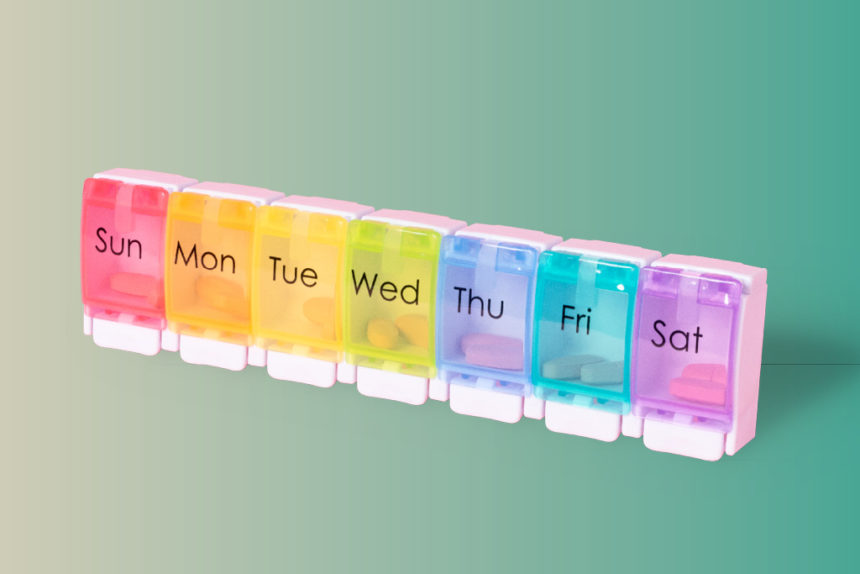Biogen’s Alzheimer’s disease drug Aduhelm has seen slow uptake from the get-go, hampered by inconclusive efficacy data and a $56,000 sticker price. The firm’s third-quarter earnings reveal just how slow its debut has been.
Aduhelm rang in sales of only $300,000 in the first full quarter since the drug was approved in June, short of the $12 million forecast by Wall Street. That spurred analysts at Raymond James to call it “potentially the worst drug launch of all time” given “persistent hyperbole about the drug’s purported benefits,” in a note to investors Wednesday.
The post-FDA approval period, usually a time of momentum for a new pharma brand, has been anything but for Aduhelm. Several Blues plans, the Department of Veterans Affairs and large hospital groups including Cleveland Clinic and New York City’s Mount Sinai said they have no plans to cover or dispense Aduhelm.
“We are obviously disappointed with the delayed uptake of Aduhelm in the U.S.,” said Biogen CEO Michel Vounatsos on a call to discuss the earnings with analysts. “The healthcare system remains a major bottleneck. In particular, the lack of clarity on reimbursement has delayed patient access.”
Aduhelm is the first new drug for Alzheimer’s in nearly two decades, as well as the first to address an underlying pathology: a sticky protein in the brain known as amyloid.
Vounatsos said Biogen is working to improve doctors’ understanding of the clinical trial data by submitting the results for publication in a major peer-reviewed journal. Biogen is also paying for amyloid-testing for patients prescribed Aduhelm through LabCorp and Mayo Clinic Laboratories, as well as obtaining the necessary codes for reimbursement.
The FDA’s decision was predicated on the expectation that reducing amyloid would effectively slow cognitive decline, though it acknowledged the uncertainty of that benefit. Controversy ensued, with doctors and scientists fretting over the drug’s unproven efficacy.
Health economists, meanwhile, lamented its $56,000-per-year list price, cost implications for Medicare, administration and monitoring requirements, and potential wide use. Internal memos later revealed the agency overruled its own biostatisticians.
Biogen noted Wednesday that 120 sites had infused at least one patient – more than twice the number that had done so as of six weeks ago – and several hundred sites are in progress. But many of these sites are still working through the process.
“Being first and being a pioneer in this space has been overwhelming for the system and for these sites,” said Biogen chief commercial officer Alisha Alaimo during the earnings call. “It’s been taking them several months to get up and running.”
The company continued to point to an upcoming Medicare decision and physicians’ risk/benefit perception as the primary hurdles to adoption.
The CMS national coverage determination (NCD) “is the bigger lever because a positive decision could get the launch moving with undecided prescribers,” the Raymond James analysts pointed out. “A negative NCD could force Biogen to lower the price to reach an agreement with private payers.”
Those who are on the fence represent “a meaningful portion of prescribers,” Alaimo noted.
When the NCD is issued, or new evidence becomes available, health plans may revisit their positions on Aduhelm. In a July poll of health plans, pharmacy benefit managers (PBMs) and pharmacy directors by AIS Health, 72% said they expect private coverage decisions to change if CMS decides Medicare will cover the drug.
A preliminary decision by CMS is expected by January and a final one is scheduled for April. Meantime, with a full-year investment of $500 million in commercialization of Aduhelm (prior to a $150 million reimbursement from co-promotion partner Eisai), Biogen remains committed to the $56,000 annual list price.
The company expects to sell $800,000 in the current quarter before breaking the million-dollar mark in 2022.
“We are not panicking,” Vounatsos said. “The system is not ready, evidently, but it’s a long way to go.”
With the biotech’s overall third-quarter revenue slipping to $2.78 billion from $3.38 billion in the year-ago quarter, and sales of its multiple sclerosis and other drugs largely flat or declining, it could be a long road indeed.







